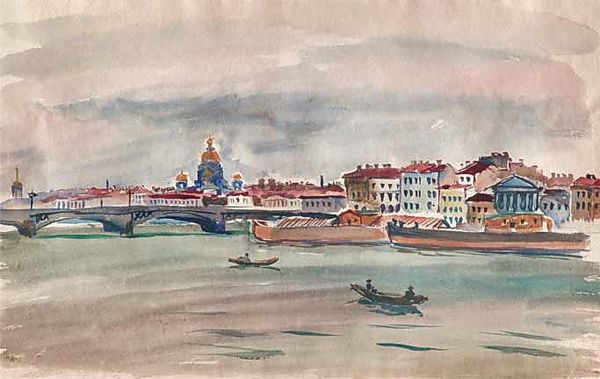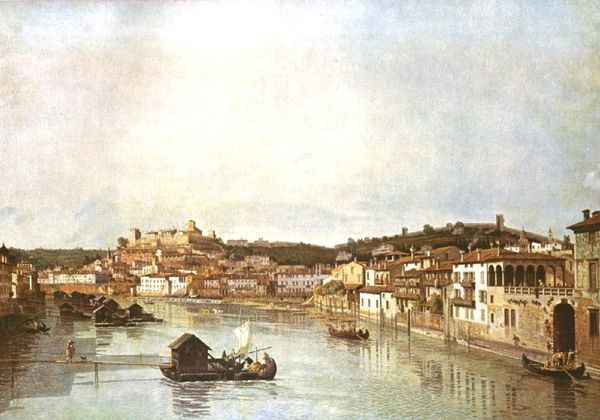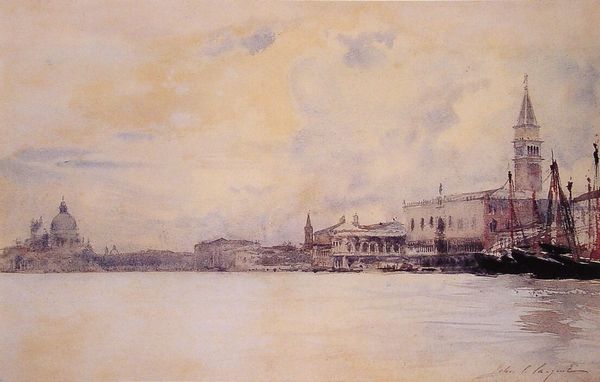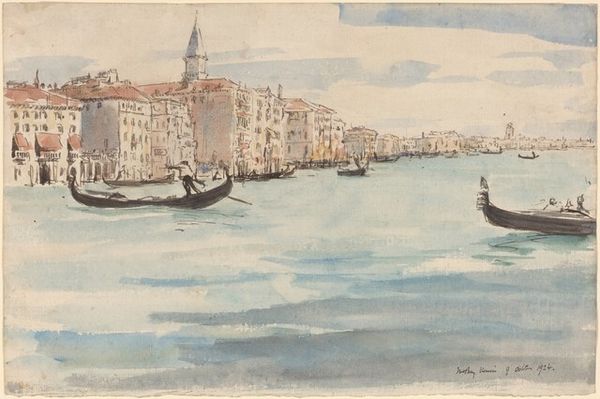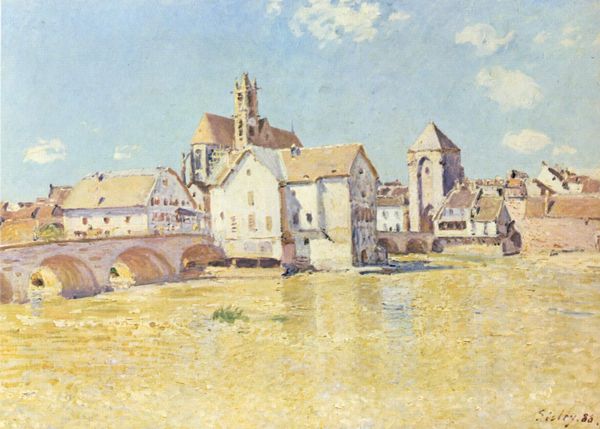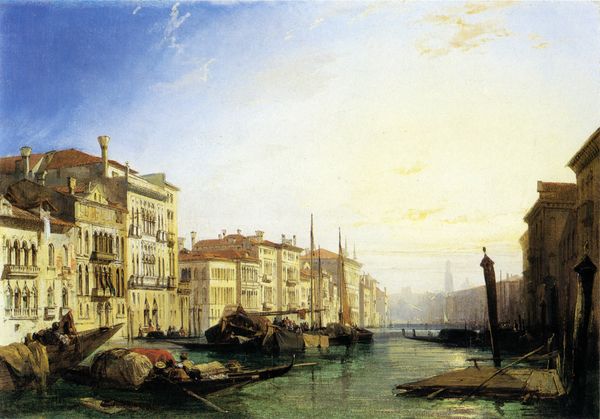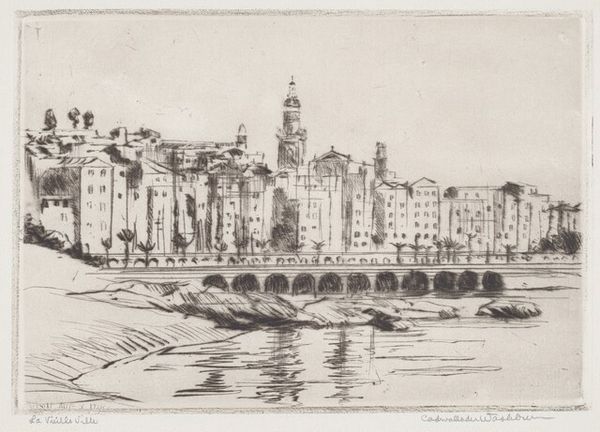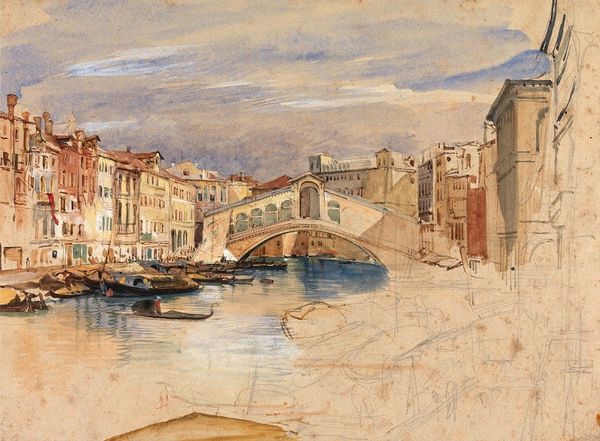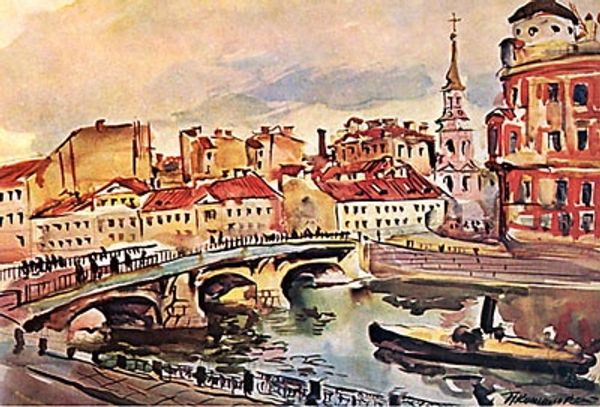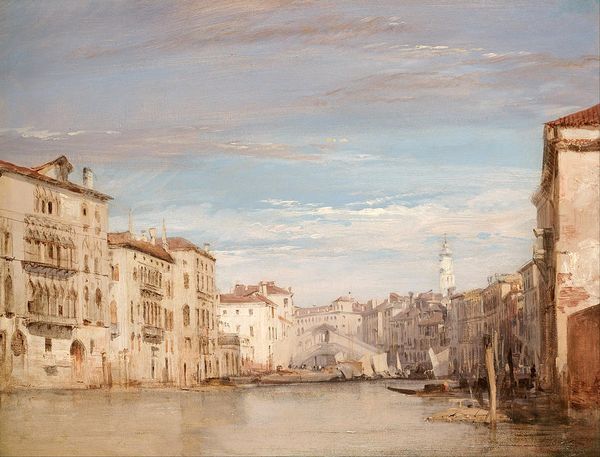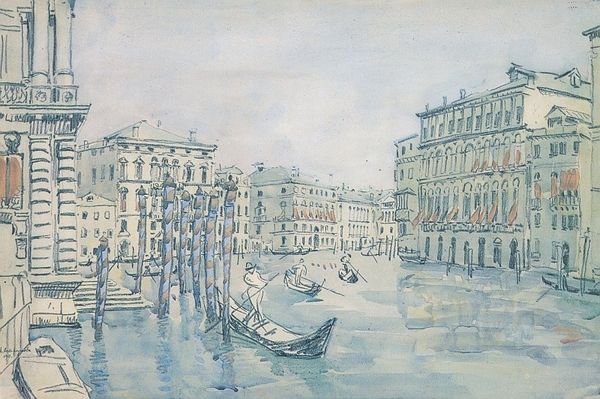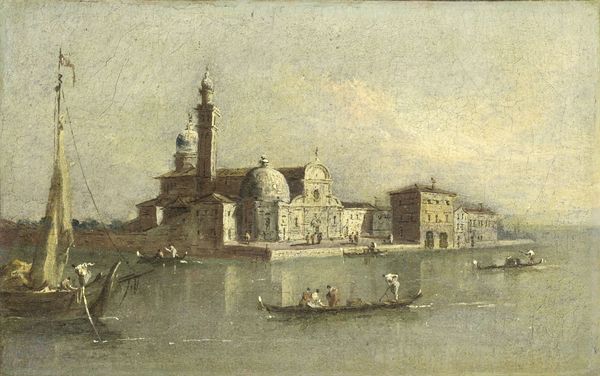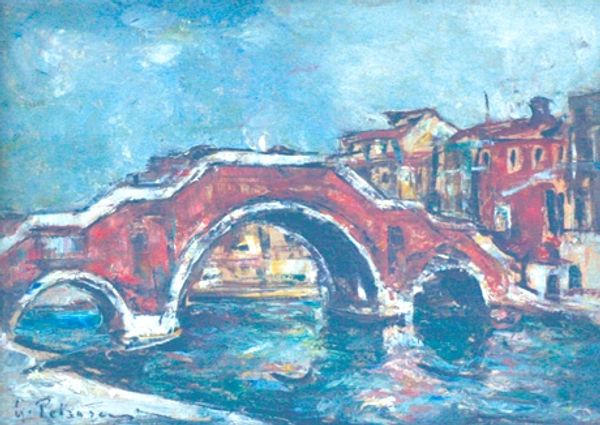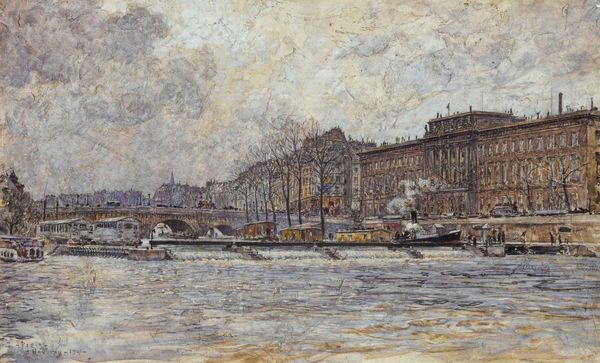
Dimensions: 32.7 x 48 cm
Copyright: Pyotr Konchalovsky,Fair Use
Editor: We're looking at "Leningrad. The embankment of the Neva," a watercolor painting by Pyotr Konchalovsky from 1931. It’s quite striking—the colors are muted, almost dreamlike, which creates this somber feeling, even with the presence of the water and buildings. What catches your eye most about this work? Curator: Well, this painting really speaks to the tension between artistic expression and socio-political realities in early Soviet Russia. Konchalovsky, though trained in pre-revolutionary styles, was working in a time when art was increasingly expected to serve the state. Look at the cityscape – it's recognizable as Leningrad, but it's devoid of overt revolutionary imagery. Editor: So you're saying the choice of subject itself—a landscape—is significant? Curator: Absolutely. Landscape, while seemingly neutral, becomes a stage. It raises questions. Is it an endorsement of the city, or a quiet observation? The lack of glorification might be a subtle act of resistance, a way to avoid producing purely propagandistic art. How does this interpretation affect your reading of the "somber feeling" you sensed? Editor: That's fascinating! I initially saw it as just a melancholic depiction of a city. But knowing the political climate adds a whole new layer of complexity. It makes me wonder about Konchalovsky’s intentions and how viewers at the time might have interpreted it. Curator: Precisely. And consider the role of institutions. Works like this were acquired and displayed by Soviet museums, fitting into a curated narrative of Russian art. The presentation shaped its reception. Does thinking about the socio-political landscape affect your perception of artistic "freedom?" Editor: It definitely does. It shows how even seemingly simple landscape paintings can hold deeper meanings. I’ll definitely approach artworks with a more critical and historical lens moving forward. Curator: Wonderful. And I appreciate your initial, emotional response; it's a reminder that art always speaks to us on multiple levels.
Comments
No comments
Be the first to comment and join the conversation on the ultimate creative platform.
